August 15, 2024 0 Comments
There’s a big change happening in the cattle industry that could impact what ends up on your plate, whether you’re whipping up dinner at home or crafting dishes for your menu. It’s not just about the rising cost of beef—it’s about the long-term quality, availability, and sustainability of our food and the livelihoods of small family farms. Let’s dive into what’s going on and why it should matter to all of us.
Right now, America’s cattle industry is facing some big challenges. The number of cattle in the U.S. has dropped to the lowest levels in over 70 years. Why? The current crisis is primarily driven by severe drought conditions in major cattle-producing regions. When there's not enough rain, the grass that cattle eat doesn't grow well, and water sources dry up. This forces ranchers to sell off more cattle than usual because they can't feed or water them adequately.
As the cattle population declines, the basic economic principle of supply and demand comes into play. With fewer cattle available, the supply of beef shrinks, leading to higher prices at the grocery store and in restaurants. You’ve probably already noticed the rising cost of ground beef, and unfortunately, it could get worse as the cattle population remains low. Simply put, when there’s less beef to go around, it becomes more expensive.
Source: USDA, National Agricultural Statistics Service (NASS). "Cattle Inventory by Year, United States." Accessed August 16, 2024. https://www.nass.usda.gov
The situation is further compounded by economic pressures. Ranchers often rely on loans to cover the costs of raising cattle, especially during tough times like these. When they have to sell off cattle early due to drought, they might not make enough money to pay back these loans. This financial strain forces some ranchers to reduce the size of their herds even further or exit the business entirely, lowering the overall cattle supply even more. As small family farms struggle, we risk losing a vital part of our agricultural heritage. These farms are often passed down through generations, and when they go out of business, the knowledge, traditions, and care for the land that they represent are lost as well.
But there's more to this story. The industrial farming practices used by most U.S. cattle producers have rendered much of our farmland more susceptible to drought. By relying heavily on monoculture and chemical inputs, industrial farms often degrade the soil, stripping it of its natural resilience. This makes the land less capable of retaining moisture and more vulnerable to the impacts of drought. As a result, when droughts hit, these farms are less able to cope, exacerbating the crisis.
The current cattle crisis is pushing beef prices higher as the supply dwindles. With fewer cattle available, we’re relying more on imported beef, which may not always deliver the quality or sustainability you expect. The closure of small, family-run American farms—a vital part of our agricultural heritage—means not just a reduction in our national cattle supply but also fewer choices for you as a consumer or chef. As large industrial operations gain ground, it becomes harder to find and support beef from farms that align with your values.
Your choices matter. Support small American farms, especially those committed to regenerative or sustainable practices. By purchasing beef that’s truly born, raised, and harvested in the USA, you help preserve the heritage, quality, and diversity that make our food system strong. The USDA’s new “Product of USA” rule, set to take full effect by January 1, 2026, will ensure that labels like “Product of USA” or “Made in the USA” truly reflect where your beef comes from. Until then, it’s important to do your research and choose products that genuinely support American farmers.
At Joyce Farms, we’re committed to doing things the right way—real flavors, real farming, and real support for those who care about quality. Whether you’re crafting a special dish at home or planning a menu, knowing where your meat comes from makes all the difference. By choosing products from regenerative or sustainably managed farms, you’re not just making a better choice for your meals—you’re contributing to a system that prioritizes quality, sustainability, and the future of our food supply. Explore our selection of Heritage Beef, raised on regenerative farms here in America, to make a positive impact and support the livelihoods of small family farms.
CLICK TO VIEW OR DOWNLOAD .PDF INFOGRAPHIC
October 11, 2024 0 Comments
In the wake of Hurricane Helene's devastation, Asheville’s culinary community is coming together to offer more than just food. From hosting fundraising events to donating meals and resources, these chefs, restaurateurs, and food artisans are playing a vital role in relief efforts, feeding hope to those in need.
August 30, 2024 0 Comments
As consumers become more conscious about the origins of their food, labels on meat and poultry offer reassurance that our choices align with our values. However, new USDA guidelines aimed at strengthening these claims bring a new challenge: balancing trust in these labels with the rising costs of maintaining them, especially for small producers. Explore how these changes could impact the food you choose and the diversity of options available.
August 26, 2024 0 Comments
A look back at our 2021 #CelebrateMeat initiative, meant to challenge the growing calls to cancel meat. By collaborating with chefs, experts, and thought leaders, we showcased how responsibly raised meat is not just good for the planet but also worth celebrating. Reflect on our journey and explore the powerful voices that made this campaign a success.
© 2025 Joyce Farms.
Powered by Shopify
